News
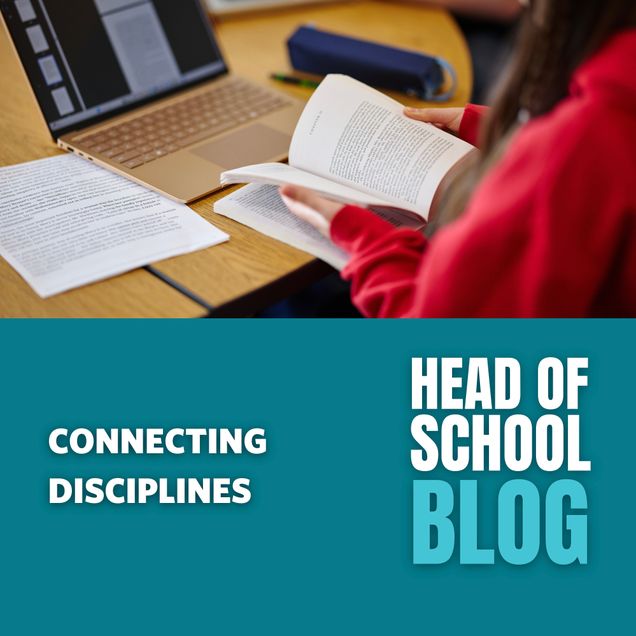
Connecting Disciplines
I visited several classes this week. Even on these cold, gray January days in the aftermath of a snowstorm, the energy and engagement were high. One special moment stood out. A geometry teacher asked a group of his students who happened to be taking ancient Greek to work through and present on Euclid’s proof of the Pythagorean theorem – handing them an English translation alongside the original text. The “Greeklings” lit up – excited to find Greek words they recognized and piece things together. I later talked to a U.S. history teacher, who told me that her class had analyzed Walt Whitman’s poem Vigil Strange I Kept on the Field One Night during their study of the Civil War. She recounted how her students made immediate connections to other Whitman poems from Leaves of Grass they had read in English and were excited to talk about what they had learned. Foundations in disciplines are critical, and there are good reasons why we teach in the buckets that we do. It is, though, really rewarding when students see that boundaries between disciplines are porous and that the deepest insights often come from a combination of disciplinary approaches. Our curriculum is intentionally designed by this talented faculty to invite students to discover the types of connections they made this week. I’m grateful to our teachers and so happy to be at a school where those connections make kids light up.
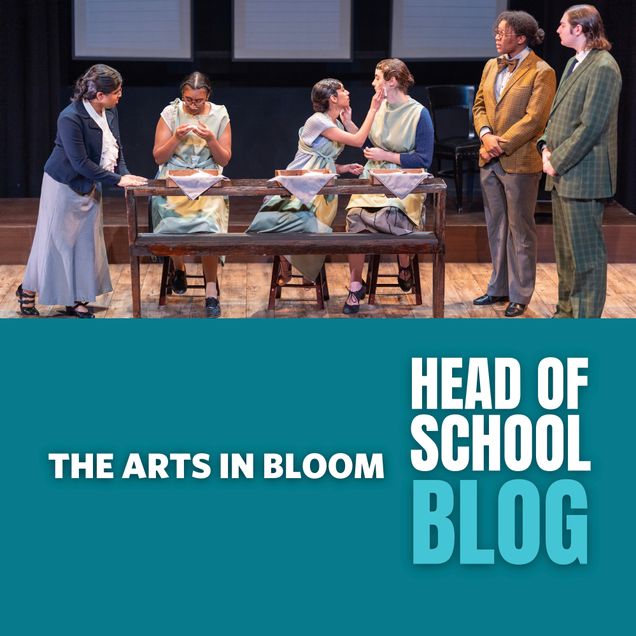
The Arts in Bloom
In the depth of winter, we are experiencing a blossoming of the arts. The hallway walls are a riot of color – filled with student drawings, paintings, photographs, and digital graphic design work from the first semester. The technical excellence of the pieces is as impressive as the broad range of styles and perspectives, and I love that the building serves as a rotating gallery. We hope that many of you will join us at the visual art show and reception next Friday afternoon. Today is also opening night of the fall play, Radium Girls – a poignant historical piece about female watch-dial painters poisoned by radium-based paints in the 1920s. I’ve always admired our actors’ willingness and desire to take on thematically important scripts and look forward to seeing them on stage this weekend. Next Friday is our Winter Concert in BU’s beautiful Tsai Performance Center. It is a fitting backdrop for the students in our orchestra and chorus, along with a few intrepid faculty members, who will showcase a semester’s work on a number of challenging pieces. It is also a wonderful occasion for the broader BUA community to support the arts and enjoy an evening together. Great thanks to our world-class arts faculty for their mentorship and love of these exceptional young artists. See you in the audience!
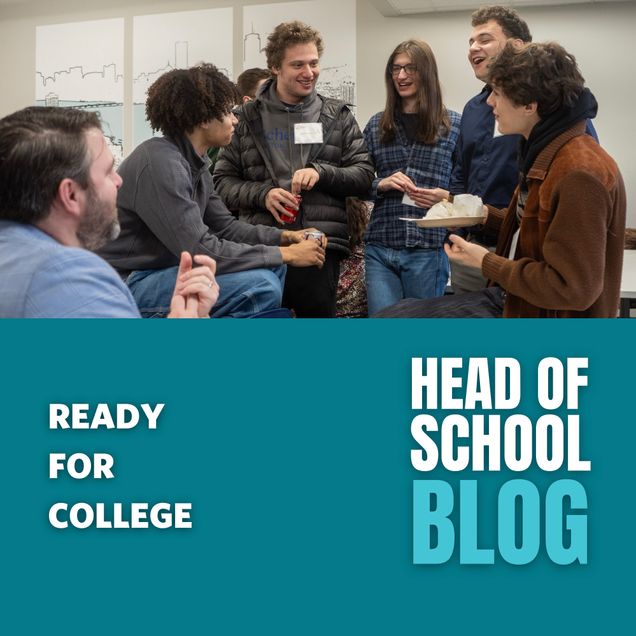
Ready for College
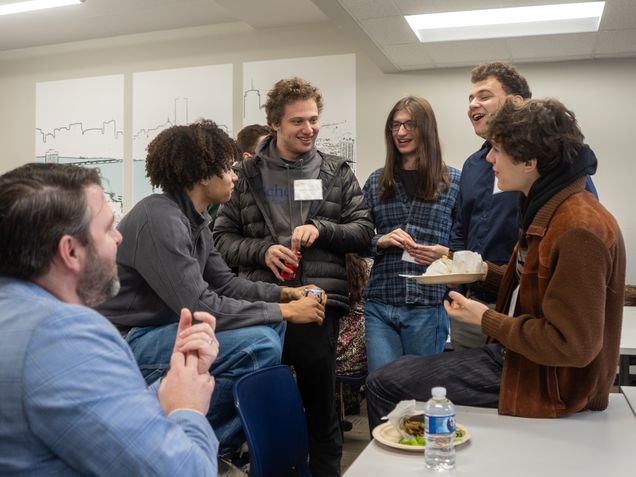
One of the things that is especially fun about the first weeks back from winter break is that our college-aged alums come back to visit, since their semesters have often yet to start. They pop in on their teachers and friends – catching up on their college fall semesters and on what’s been happening at BUA.
We hosted a lunch for that cohort last week, which several dozen BUA graduates attended. I had a chance to ask them about how things are going. What I heard was heartening. We know from recent survey results of young alums that they feel ready for college. 95% of recent graduates agreed that having attended BUA, they were better prepared for college than they would have otherwise been. 100% reported that BUA prepared them well as writers. 91% agreed that their experience at BUA helped them navigate college life with confidence and independence. The stories I heard added some helpful context. Certainly, they told me about their confidence in navigating their courses. But I also heard about advanced classes students were able to take because of their BU coursework and how that opened the door to a second major. Alums told me how they took advantage of office hours to build relationships with professors and how some of those conversations turned into research assistant positions. Others told me about how they have started new clubs, noting a need in the community and having the confidence to navigate the college bureaucracy. The picture that emerged was a group of students with the confidence and savvy to not only succeed in college but to get more out of experience. I’m really proud of them, and it makes me happy that they are thriving.
View more from our Young Alumni Lunch with the classes of 2021-2025 from Thursday, January 8th, 2026 here.
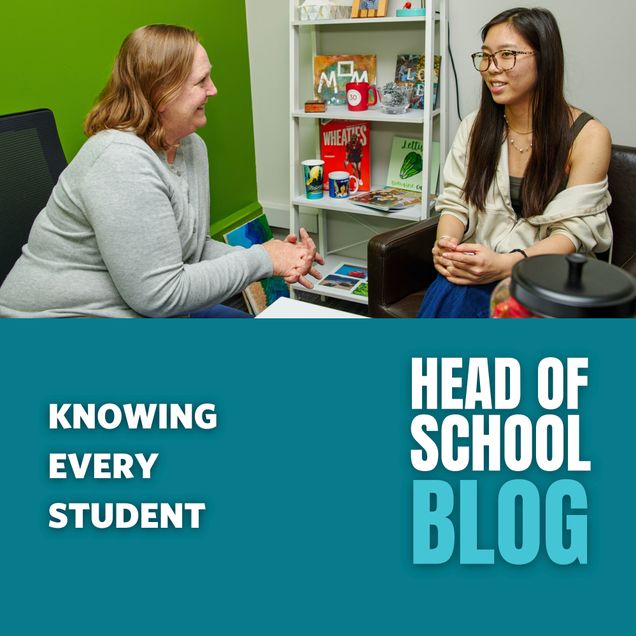
Knowing Every Student
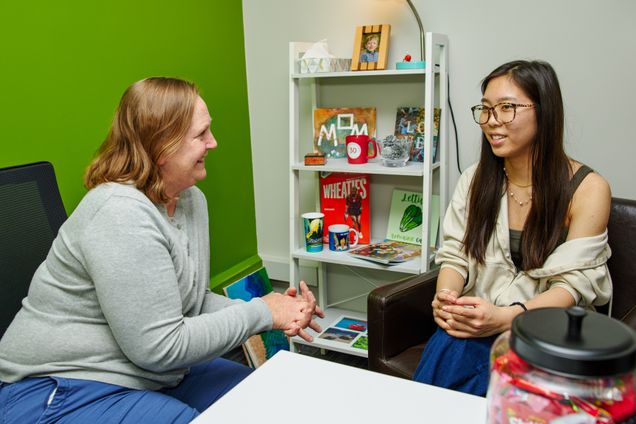
As we do every year, the faculty started the semester a day before the students. All teachers and advisors sit together for a full day. The topic? Our students. Over the course of the day, we talk through each student – reviewing academic performance, engagement outside the classroom, and social connections. It’s a chance to share observations, talk about support students might need in the coming semester, and celebrate growth and successes. I’m consistently impressed by how well these teachers know the kids and by the number of voices speaking up about each student. Certainly we hear stories and reflections from each student’s advisor and classroom teachers. We also, though, hear from adults in the community with less direct daily contact but who have managed to form a connection.
Too often in schools, it is only the students who are struggling in some way who get attention from the adults. I’m proud to be part of a place where we take the time to talk about every kid. Every young person deserves to be known and loved – the one central promise we make to our families when they join BUA. We work hard to live up to that each day.
Reva Machanavajhula ’28 Selected for MA Junior Golf Team
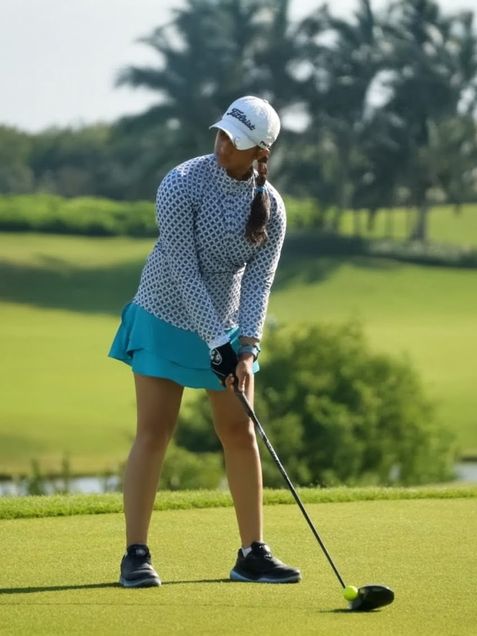 Reva Machanavajhula '28 was selected for the Massachusetts state junior golf team, one of only eight girls in the state to achieve this honor. According to a press release from Mass Golf, the MA junior golf team is a "pillar of the US National Development Program (USNDP), established in 2023 to create a unified pathway designed to nurture the potential of the best players throughout the country."
Reva Machanavajhula '28 was selected for the Massachusetts state junior golf team, one of only eight girls in the state to achieve this honor. According to a press release from Mass Golf, the MA junior golf team is a "pillar of the US National Development Program (USNDP), established in 2023 to create a unified pathway designed to nurture the potential of the best players throughout the country."
Reva's golf accolades include:
- Junior-Mite Division winner in Massachusetts Girls’ Junior Amateur Championship (2020, 2022, 2023)
- 2nd in 2024 and 2025 NEPGA Girls Bay State Cup
- Qualified for match play in 2024 and 2025 Massachusetts Girls’ Junior Amateur Championship & 2023 Massachusetts Women's Amateur Championship
- Represented Mass Golf in Junior Inter-City Team Matches (2024)
- Represented Team New England in Remy Cup (NE vs Conn) in 2024 and 2025
Reflecting on her impressive golf career, Reva shares: "Golf for me is a game of decision-making, focus, and constant adjustment. Every shot requires problem-solving and discipline. I approach the game by trying to understand not just what works, but why it works, using strategy, pattern recognition, and analytics to test ideas and improve over time. That mindset has helped me stay adaptable and mentally tough, and it carries over into how I approach school more broadly. BUA has allowed me to pursue competitive golf while staying engaged in a challenging academic environment, with teachers and classmates who support and cheer me on."
Research Highlight: Armaan Mehta ’26 Presents at Materials Research Society Conference
 Earlier this month, BUA senior Armaan Mehta '26 presented a poster at the Materials Research Society's fall meeting and exhibit at the Hynes Convention Center in Boston. Armaan's poster, entitled "Stress Evolution During Low Energy Ar+ Bombardment of Si," focused on stress evolution during low energy Argon bombardment of Silicon.
Earlier this month, BUA senior Armaan Mehta '26 presented a poster at the Materials Research Society's fall meeting and exhibit at the Hynes Convention Center in Boston. Armaan's poster, entitled "Stress Evolution During Low Energy Ar+ Bombardment of Si," focused on stress evolution during low energy Argon bombardment of Silicon.
Armaan explains: "Stress evolution is seen as a possible cause of nano-ripples, a feature seen when a Silicon sample is bombarded with Argon. To determine whether stress is the cause of the nano-ripples, we used a real time MOSS system (multi-beam optical stress sensor) and then used an Atomic Force Microscope to inspect the sample. So far, our research suggests that the nano-ripples are independent of stress as the ripples are anisotropic (only in the x direction) whereas the stress is isotropic (in both x and y directions)."
Armaan "became interested in this project because the nanopatterns that are formed are a very recent phenomenon and understanding how stress relates to these patterns could have major implications. And of course, how can bombarding something in a vacuum chamber not be fun?!"
He co-presented his poster with Yasheng Jiang, a graduate student in physics at BU, and received research support from Professor Karl Ludwig in Boston University's College of Engineering and Benli Jiang, a PhD candidate in physics at BU.

Alumna Sophia Tang ’25 in the International Journal of High School Research
 Alumna Sophia Tang '25 published a peer-reviewed article titled “Specific Genetic Factors in PTSD and Comorbidities” in the October 2025 issue of the International Journal of High School Research. Sophia's research identifies several genes and genetic pathways linked to PTSD and related disorders and suggests the possibility of customized pharmacological treatments based on these findings.
Alumna Sophia Tang '25 published a peer-reviewed article titled “Specific Genetic Factors in PTSD and Comorbidities” in the October 2025 issue of the International Journal of High School Research. Sophia's research identifies several genes and genetic pathways linked to PTSD and related disorders and suggests the possibility of customized pharmacological treatments based on these findings.
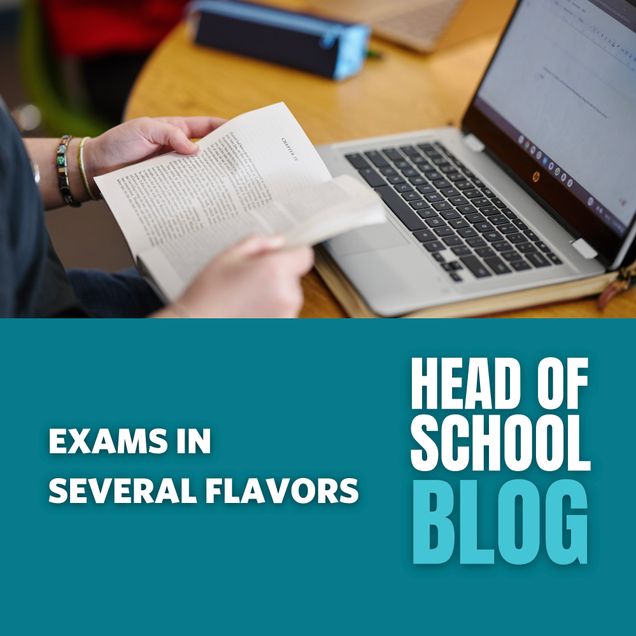
Exams in Several Flavors
Today is the last day of BUA classes. It has been a very good semester, and students’ attention has understandably turned to preparation for next week’s exams. We believe that exams play an important role. They provide students the chance to practice synthesizing months of material and to demonstrate long-term retention of key ideas. Exams are also helpful data points for teachers on how students are learning and how teachers might adjust for the coming semester and future years.
Exams may conjure a singular image of students in long rows for multi-hour, high-stakes tests. The reality is more diverse. Our teachers have created a number of different ways for students to show what they know. There is certainly a place for sit-down, written exams; classics and most of our math classes will offer those. English and history teachers have adopted in-person, one-on-one interviews to supplement the periodic essays and other assessments. Students in chemistry and geometry will have individual oral exams with their teachers as well, while those in biology will give a poster presentation on organelles they have designed. I’m grateful for our faculty’s thoughtfulness and creativity, and wish all of our students good luck next week!
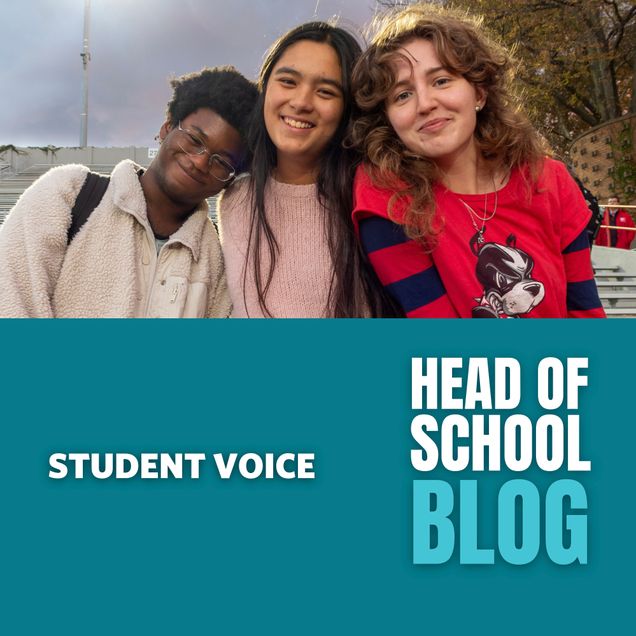
Student Voice
In place of our usual all-school meeting this week, leaders from our Student Council organized community-wide town hall meetings. StuCo representatives led sessions of about 25 students each to hear about their experiences and solicit ideas for how we can further strengthen the BUA community; we’ll review those ideas together later this winter and report back at a school meeting. Another round of town halls is in the works for the spring, and I hope this becomes a new school tradition.
This year, we are also running several small ad hoc working groups, where teachers, staff, and students collaborate on important school policy questions – one focused on our daily schedule and another on our learning-management system. Those groups make recommendations to the full faculty and staff and have a real impact on the life of the school.
Schools are better when students – the experts in what the school experience is really like – have channels to speak up and feel empowered to play a role in shaping the community. That’s particularly true here, where we have an exceptionally thoughtful, dedicated, creative, and talented cadre of young people. I’m proud to work with them side by side.
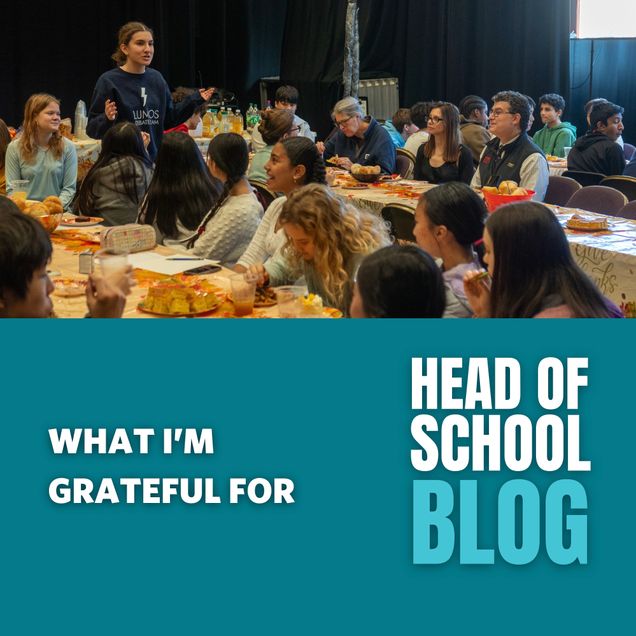
What I’m Grateful For
With Thanksgiving days away, we turn our attention to gratitude. Brimming donation boxes from the 9th-grade food drive adorn the lobby. Tuesday’s all-school meeting will feature short talks by a handful of juniors and seniors who will tell the community about something they are grateful for. It is good for the soul to pause, reflect, and share the blessings we enjoy.
I’d like to take a moment here to express my personal gratitude to this community. I often share (brag, really) with colleagues at other schools that our parent community is like no other. Like their children, our parents value learning, challenge, and growth for their own sake, even in a society that tends to focus too narrowly on college lists and grade outcomes. They trust the school and our extraordinary teachers in a way that has become all too rare. Our students, too, are one of a kind. I have yet to visit another school where curiosity and kindness are the expectation and weaved into the cultural fabric like they are here. I have been meeting groups of seniors for lunch recently. They often ask how we select for those traits in admissions, how we perpetuate that culture day to day, and how they, as leaders in the community, can help. They recognize how rare this student culture is, and I love their desire to preserve it for another generation.
Finally, a thank you to my colleagues on the faculty and staff – the heart of this great school. Our teachers bring an unusually deep well of knowledge, fitting guides for a school filled with kids thirsty to know more. The teachers and staff – including those who will sacrifice sleep and time with their families to chaperone Lock-In tonight! – lean into and model the work ethic, high standards, creativity, and kindness we expect from our students. Most of all, they love these young people. That love opens the door to learning and growth – and to lifelong mentoring relationships. I feel so lucky to work with these remarkable colleagues. I hope that you will join me by taking some time during this holiday season to thank a teacher, advisor, coach, or mentor who has made a difference in your life or in your family’s life.
I wish you a wonderful Thanksgiving.